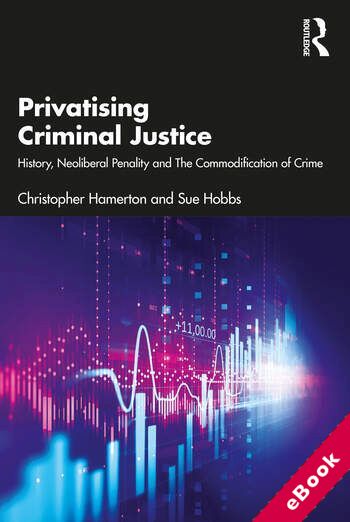
The device(s) you use to access the eBook content must be authorized with an Adobe ID before you download the product otherwise it will fail to register correctly.
For further information see https://www.wildy.com/ebook-formats
Once the order is confirmed an automated e-mail will be sent to you to allow you to download the eBook.
All eBooks are supplied firm sale and cannot be returned. If you believe there is a fault with your eBook then contact us on ebooks@wildy.com and we will help in resolving the issue. This does not affect your statutory rights.
Privatising Criminal Justice explores the social, cultural, and political context of privatisation in the criminal justice sector. In recent years, the criminal justice sector has made various strategic partnerships with the private sector, exemplified by initiatives within the police, the prison system, and offender services. This has seen unprecedented growth in the past thirty years, and a veritable explosion under the tenure of the Coalition government in the United Kingdom.
This book highlights key areas of domestic and global concern and illustrates, with detail, case studies of important developments. It connects the study of criminology and criminal justice to the wider study of public policy, government institutions, and political decision making. In doing so, Privatising Criminal Justice provides a theoretical and practical framework for evaluating collaborative public and private sector response to social problems at the beginning of the twenty-first century.
An accessible and compelling read, this book will appeal to students and scholars of criminology, criminal justice, sociology, politics and all those interested in how privatisation has shaped the contemporary criminal justice system.